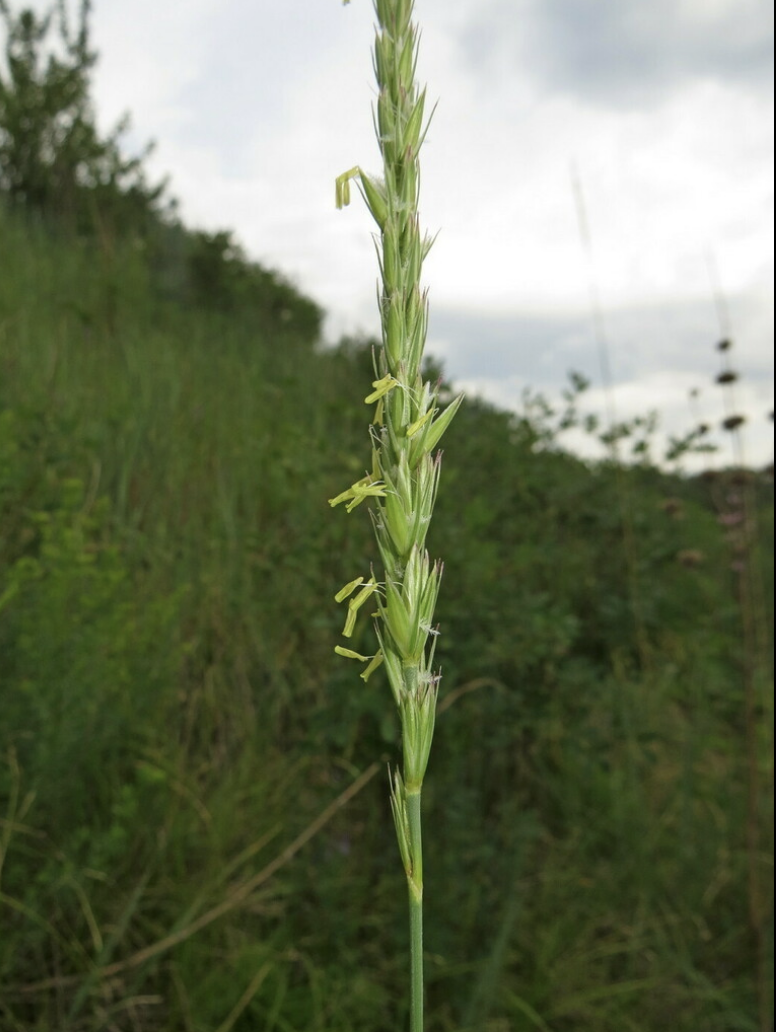
Altai wildrye
Leymus angustus
Formerly Elymus angustus. Robust, Cool season, long-lived, perennial bunchgrass with short creeping rhizomes. Well adapted to loam and clay soils, drought tolerant and extremely salt and alkaline resistant. Excellent winter hardiness. Root system may extend to 14 ft. below the surface, making it useful for soil stabilization. Excellent forage, especially in winter when plants stand above the snow surface available for grazing. Nearly as productive as Tall wheatgrass (Thinopyrum ponticum) on saline soils.
- Growing Region: Pacific Northwest, Intermountain West
- Blooms:
- Life Form: Grass
- Application Type: Agricultural Conservation, Erosion Control, Habitat Restoration, Land Reclamation
- Height: 1-4 ft
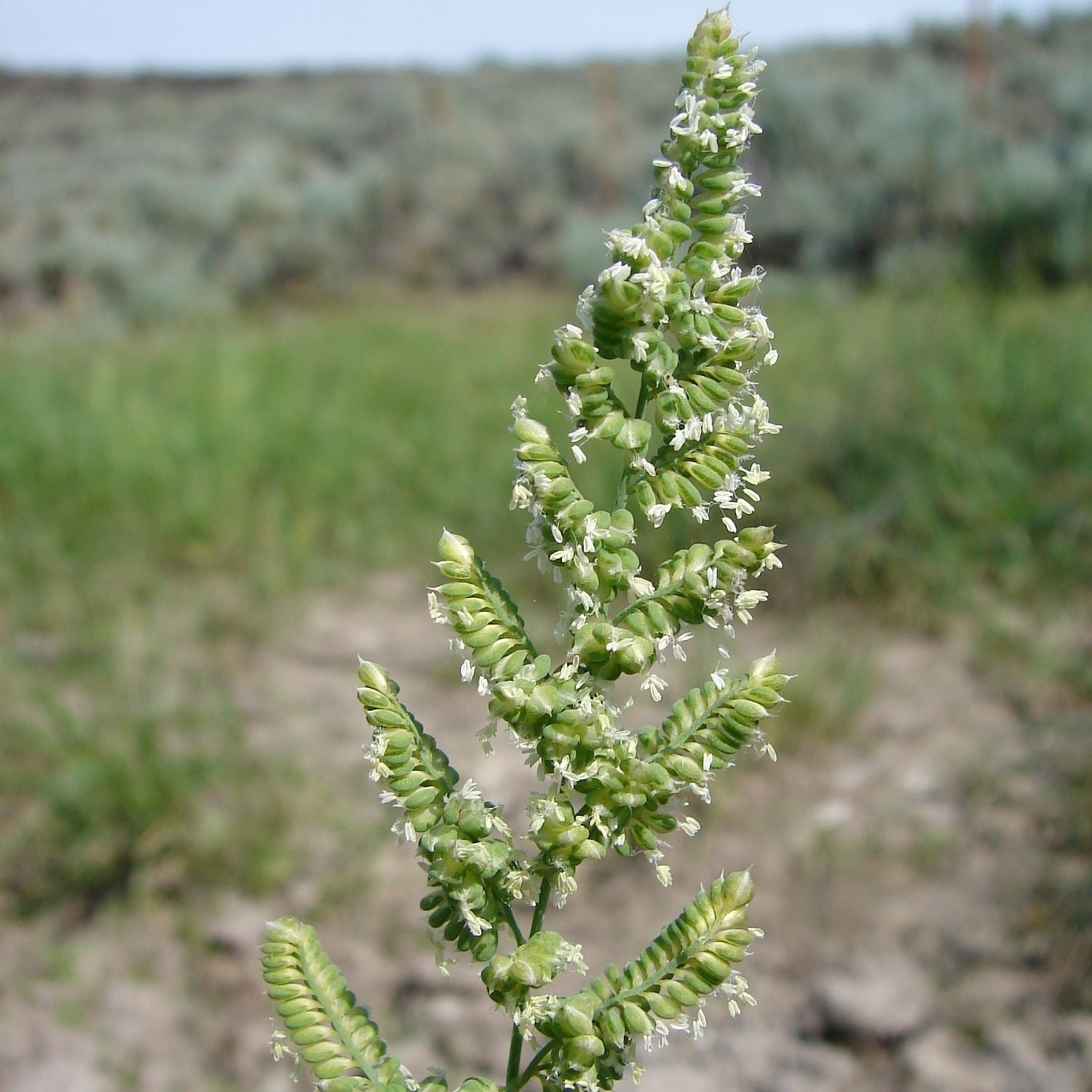
American sloughgrass
Beckmannia syzigachne
Cool season, robust annual or short-lived perennial that may develop short rhizomes. Commonly occurs on wet sites such as ponds, swamps, ditch banks, shallow marshes and sloughs. Prefers clay soils; tolerant of saline soils. Shallow-rooted and able to colonize denuded wetland soils, making it excellent for riparian reclamation. Seeds are eaten by migratory birds. Palatable and frequently used for hay or grazing.
- Growing Region: Pacific Northwest, Intermountain West
- Blooms:
- Life Form: Grass
- Application Type: Agricultural Conservation, Erosion Control, Habitat Restoration, Land Reclamation
- Height: 1-3 ft
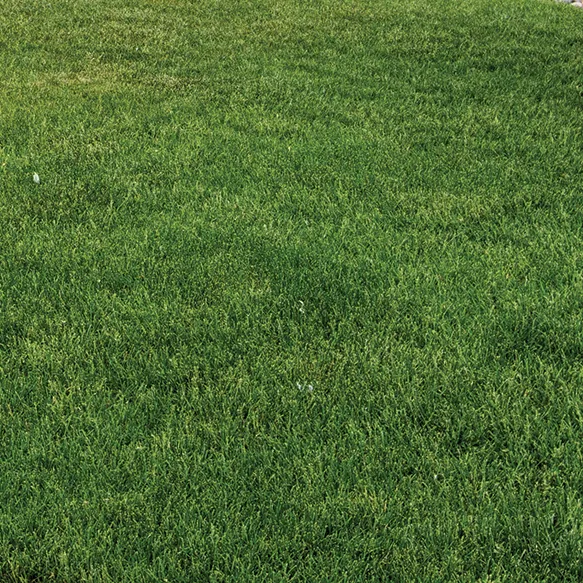
Annual ryegrass
Lolium perenne ssp. multiflorum
Formerly Lolium multiflorum. Cool season, annual bunchgrass adapted to many sites where adequate water is available. Establishes quickly and easily. Highly palatable to livestock and wildlife. Excellent for temporary pasture or for early spring growth in a perennial pasture mix. Use in erosion control blends for quick, temporary cover. Also used for winter over-seeding of dormant Warm season Bermudagrass (Cynodon dactylon) lawns in the south and southwest.
- Growing Region: Intermountain West
- Blooms:
- Life Form: Grass
- Application Type: Commercial Beautification, Erosion Control, Land Reclamation, Turf, Forage & Pasture
- Height: 1-3 ft
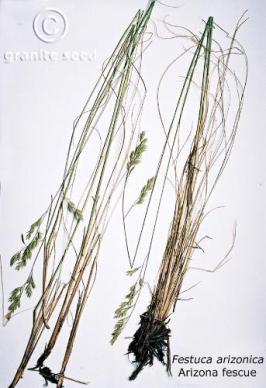
Arizona fescue
Festuca arizonica
Cool season, drought tolerant perennial bunchgrass with a coarse, dense fibrous root system. Most commonly found on thin, heavy soils but also occurs on deeper, coarser sites, often in association with Ponderosa pine communities. Provides good palatability to livestock and wildlife. Useful for controlling soil erosion and improving rangelands.
- Growing Region: Southwest, Intermountain West
- Blooms:
- Life Form: Grass
- Application Type: Agricultural Conservation, Erosion Control, Habitat Restoration, Land Reclamation
- Height: 1-2 ft
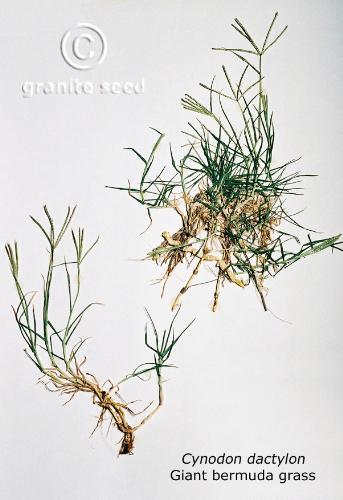
Bermudagrass
Cynodon dactylon
Warm season, long-lived, perennial that spreads from rhizomes and stolons forming dense patches. Adapted to a wide variety of sites, including saline soils. Widely used for erosion control and as highly palatable forage for livestock, but may be an aggressive invader. Listed as noxious in some states. Used also as a turfgrass in the south.
- Growing Region: Southeast, Midwest, Southwest
- Blooms:
- Life Form: Grass
- Application Type: Agricultural Conservation, Commercial Beautification, Erosion Control, Land Reclamation, Turf
- Height: 1-2 ft
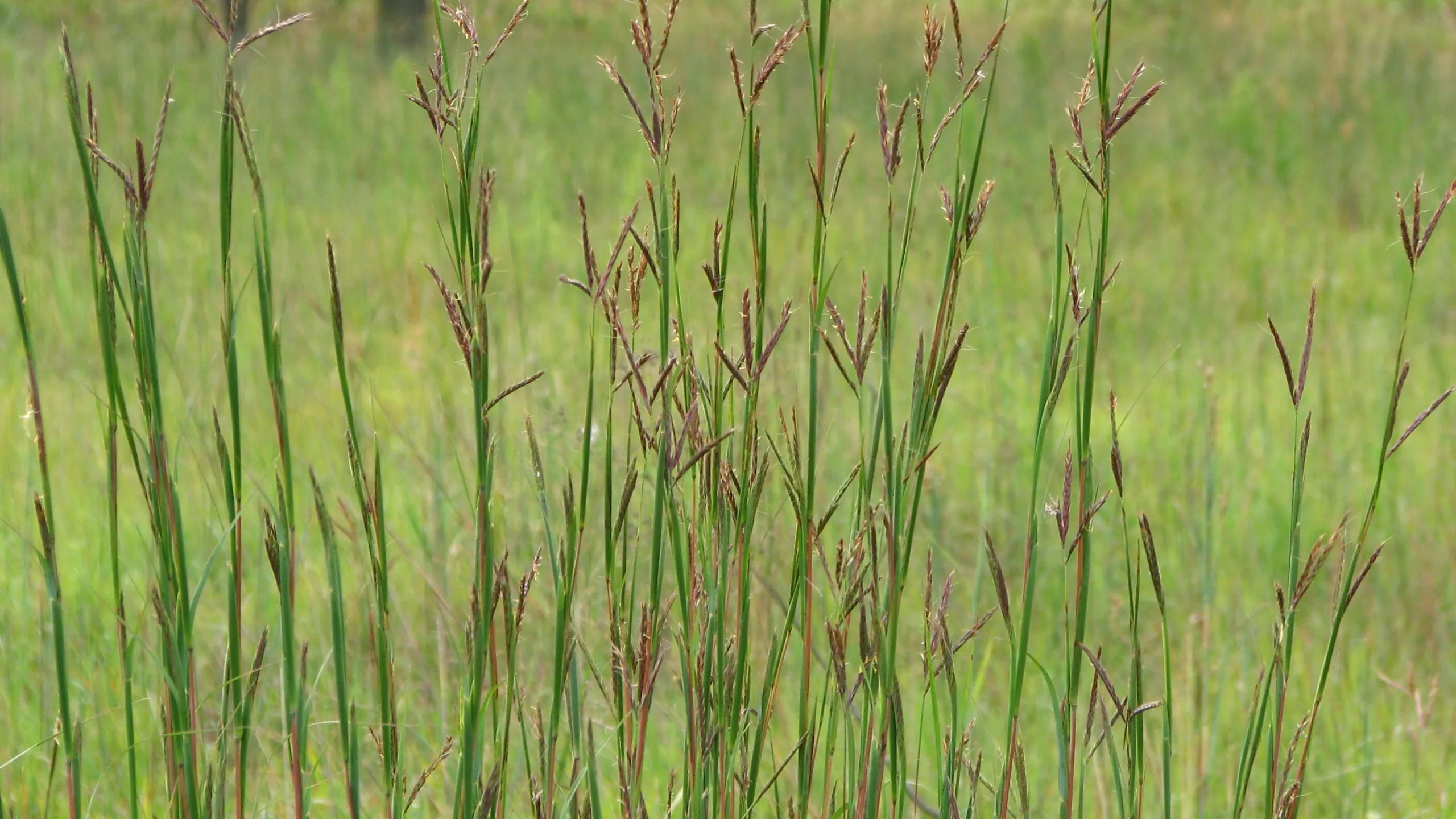
Big bluestem
Andropogon gerardii
Warm season, long-lived, perennial, bunchy sod-former occurs on a wide range of sites but thrives on well-drained soils. Rhizomes spread slowly. Tall, averaging 5-8 ft. in height, occasionally reaching 12 ft. Tolerates slightly acidic and saline soils. Withstands periodic flooding and high water tables. Co-dominant species with Indiangrass (Sorghastrum nutans) in the tallgrass prairie ecosystem; minor component of some mixed-grass prairie sites. Excellent palatability and highly productive.
- Growing Region: Midwest, Intermountain West
- Blooms:
- Life Form: Grass
- Application Type: Agricultural Conservation, Erosion Control, Habitat Restoration, Land Reclamation
- Height: 1-4 ft
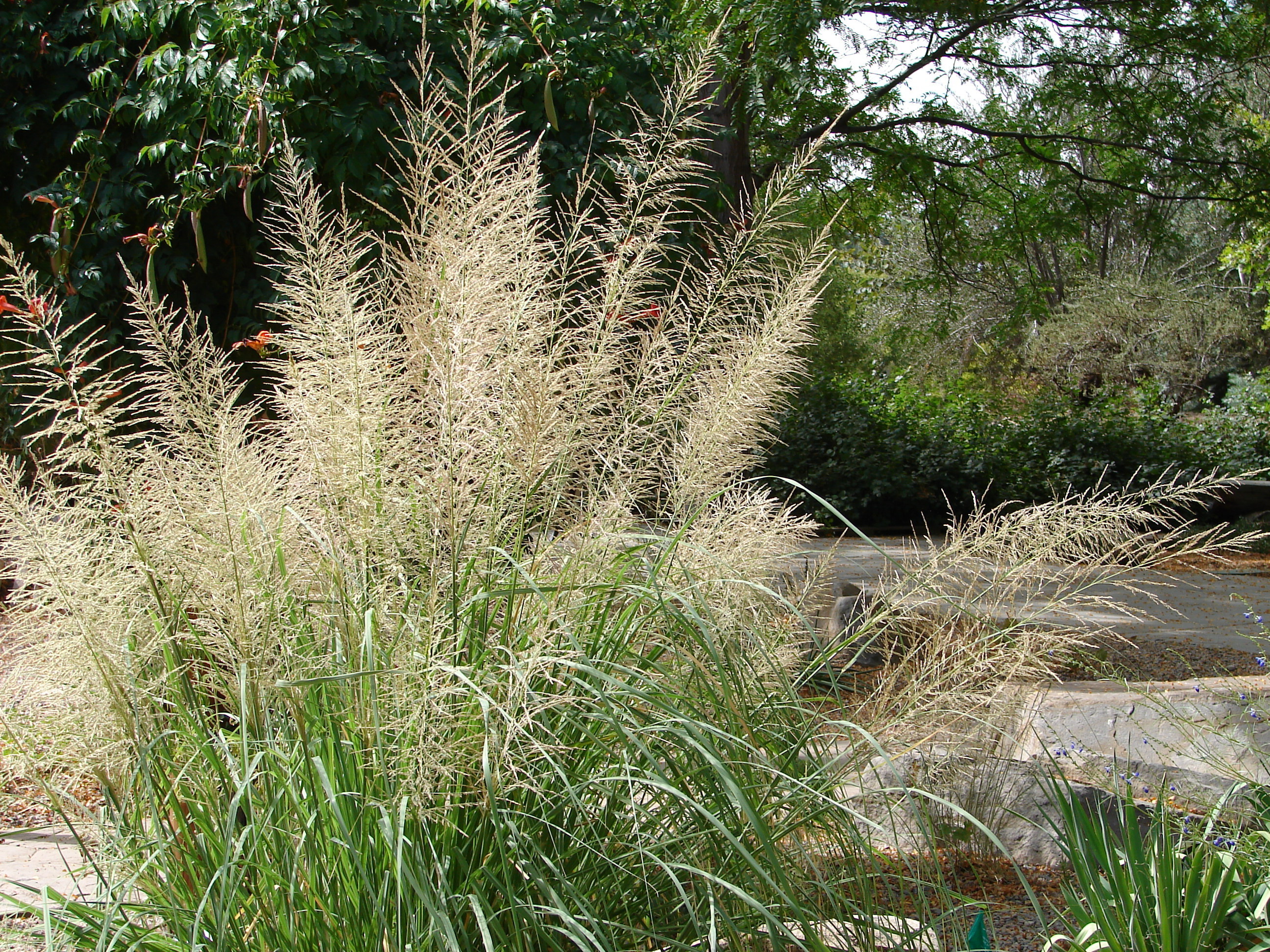
Big sacaton
Sporobolus wrightii
Warm season, drought tolerant, perennial bunchgrass adapted to various soil textures. Tolerant of alkaline and saline soils; also seasonal flooding. Found in semidesert grasslands, shrublands and wetland communities on rocky slopes, plateaus, mesas and floodplains at 2000-7000 ft. elevation. Often in pure stands of 3-8 ft. in height; excellent for trapping wind erosion. Valuable forage and cover for wildlife.
- Growing Region: Southwest, Intermountain West
- Blooms:
- Life Form: Grass
- Application Type: Habitat Restoration, Land Reclamation, Erosion Control
- Height: 4+ ft
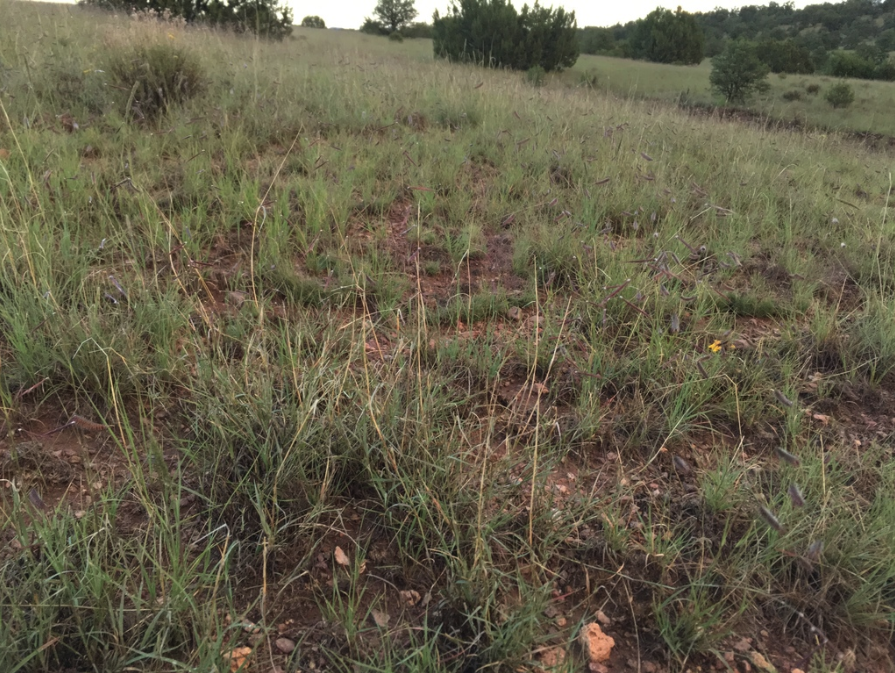
Black grama
Bouteloua eriopoda
Warm season, drought tolerant, stoloniferous perennial adapted to well-drained sandy and gravelly soils. Long-lived and considered the climax type of Southwest desert rangelands. Important forage grass over much of its range. Highly palatable but will not tolerate heavy grazing pressure.
- Growing Region: Southwest, Intermountain West
- Blooms:
- Life Form: Grass
- Application Type: Habitat Restoration, Land Reclamation, Erosion Control
- Height: 1-2 ft
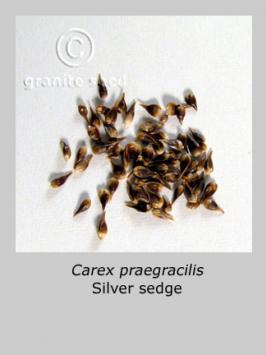
Blackcreeper sedge
Carex praegracilis
Cool season, native perennial grasslike with aggressive black rhizomes. Occurs in seasonally moist wetland areas and prairies, from low elevations up to 10,000 ft. Adapted to fine, medium and coarse alkaline and serpentine soils. Highly palatable to livestock and wildlife and tolerant of grazing and trampling. Useful for riparian and wetland reclamation. Occasionally used as a low maintenance lawn, requiring little mowing and irrigation and able to withstand foot traffic.
- Growing Region: Intermountain West, Southwest, California
- Blooms:
- Life Form: Grass
- Application Type: Agricultural Conservation, Erosion Control, Turf, Commercial Beautification, Habitat Restoration, Land Reclamation
- Height: 1-2 ft
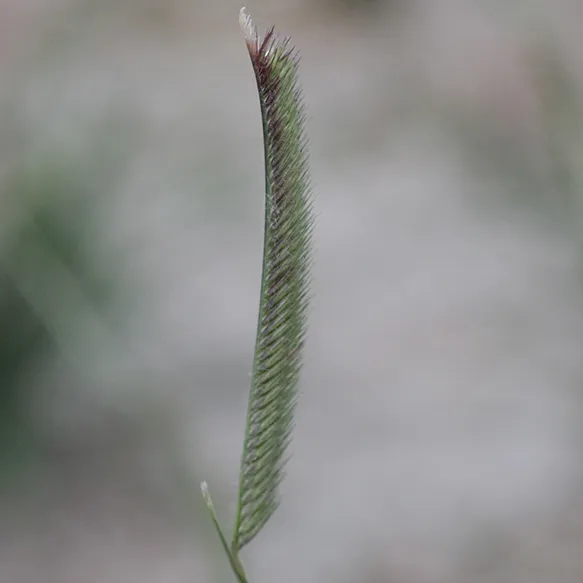
Blue Grama
Bouteloua gracilis
Warm season, drought tolerant, perennial sod-former. Adapted to a broad spectrum of soils, but thrives on medium textured, well-drained sites. Highest drought tolerance of the major Great Plains grasses. Grows in bunches in the southern U.S., but is a sod-former in the mixed-grass and shortgrass plains, at higher elevations or when frequently watered or closely grazed. Highly palatable and nutritious year round. Also used as a low maintenance turfgrass.
- Growing Region: Southwest, Intermountain West, Midwest
- Blooms:
- Life Form: Grass
- Application Type: Agricultural Conservation, Erosion Control, Turf, Commercial Beautification, Habitat Restoration, Land Reclamation
- Height: 1-2 ft
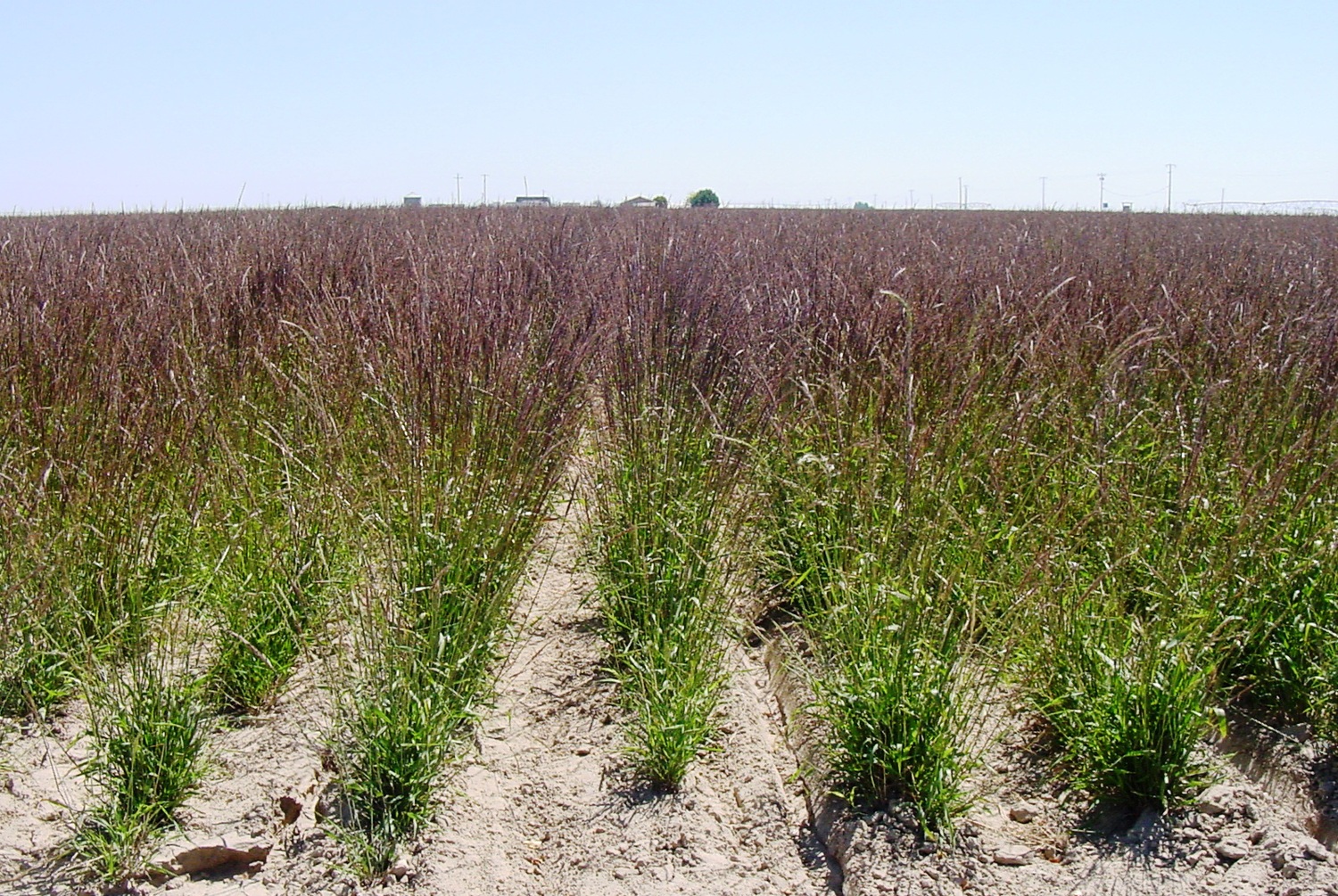
Blue wildrye
Elymus glaucus
Cool season tufted perennial bunchgrass which is highly desirable for use in erosion control seedings. Commonly found thriving in moist meadows, woodlands, or forests at mid elevations throughout its range. This species’ attractive, bluegreen foliage adds value to commercial landscaping projects where slope or site stabilization is needed. Cool season, tufted, perennial bunchgrass which is highly desirable for use in erosion control seedings. Commonly found thriving in moist meadows, woodlands or forests at mid elevations throughout its range. Shade tolerant. Attractive, blue green foliage adds value to commercial landscaping projects where slope or site stabilization is needed. Short-lived but readily reseeds itself. Varieties listed below.
- Growing Region: Pacific Northwest, Intermountain West
- Blooms:
- Life Form: Grass
- Application Type: Agricultural Conservation, Erosion Control, Turf, Commercial Beautification, Habitat Restoration, Land Reclamation
- Height: 4+ ft
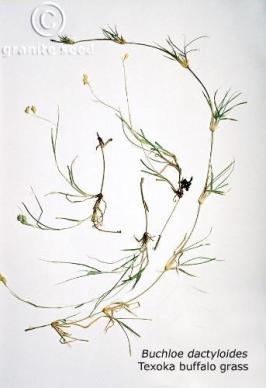
Buffalograss
Bouteloua dactyloides
Formerly Buchloe dactyloides. Short, Warm season, perennial sod-former with vigorous stolons. Long-lived and widely adapted. Extremely palatable to livestock and wildlife and tolerates grazing well. Slow to establish unless seed is treated with potassium nitrate. Used for reclamation, soil stabilization and turfgrass.
- Growing Region: Southwest, Intermountain West, Midwest
- Blooms:
- Life Form: Grass
- Application Type: Commercial Beautification, Erosion Control, Habitat Restoration, Land Reclamation, Turf
- Height: 1-3 ft
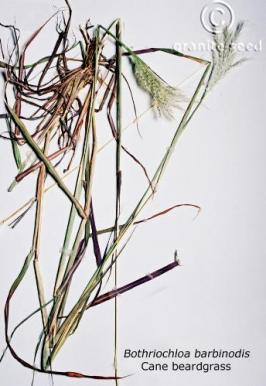
Cane beardgrass
Bothriochloa barbinodis
Formerly Andropogon barbinodis. Warm season, drought tolerant, native perennial bunchgrass found on open rangelands and rocky slopes. Prefers coarse, well-drained soils but grows on finer soils below 4,000 ft. elevation. Provides good forage when green but tends to become unpalatable when mature. Good for roadside plantings.
- Growing Region: Southwest, Intermountain West, California
- Blooms:
- Life Form: Grass
- Application Type: Habitat Restoration, Land Reclamation, Erosion Control
- Height: 1-2 ft
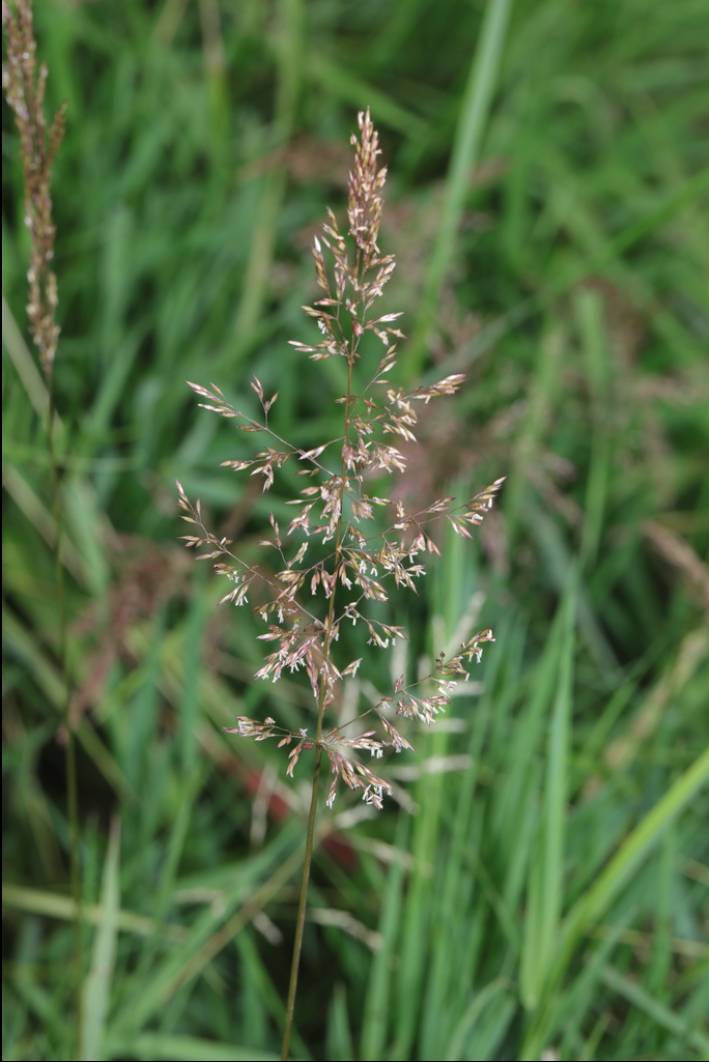
Creeping bentgrass
Agrostis stolonifera
Formerly A. palustris. Cool season, stoloniferous, perennial sometimes with short rhizomes. Grows well in moist sites and tolerates acidic conditions well. Widely adapted. Most often used for lawns, putting greens and erosion control.
- Growing Region: Intermountain West, Southwest
- Blooms:
- Life Form: Grass
- Application Type: Commercial Beautification, Erosion Control, Habitat Restoration, Land Reclamation, Turf
- Height: 1-3 ft
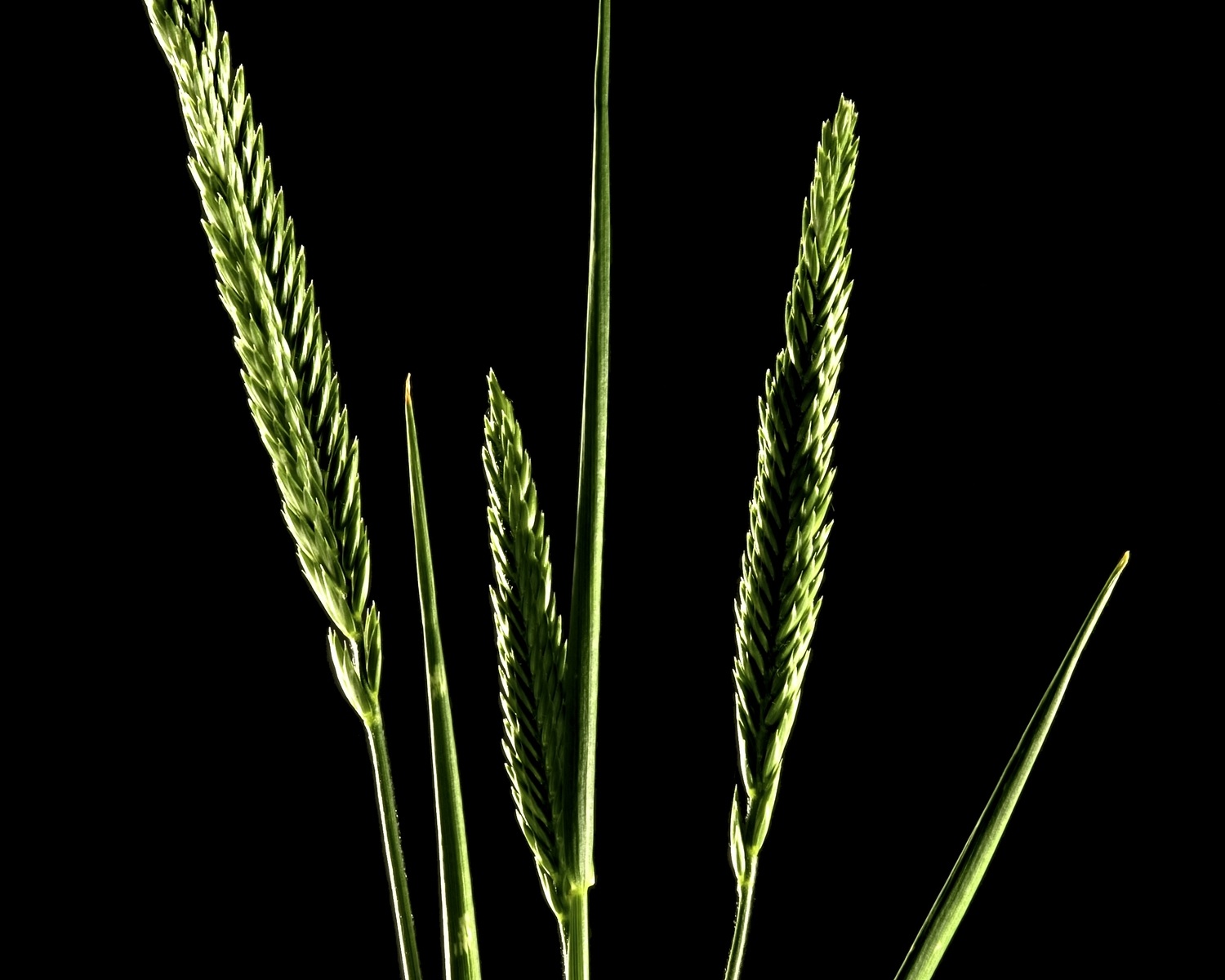
Crested wheatgrass
Agropyron cristatum
Cool season, long-lived, perennial bunchgrass that can be weakly rhizomatous. Extremely drought and cold tolerant. Adapted to a wide range of sites but is most productive on well-drained, medium textured soils. Good palatability to livestock when green. Introduced extensively throughout the West.
- Growing Region: Intermountain West, Southwest
- Blooms:
- Life Form: Grass
- Application Type: Agricultural Conservation, Erosion Control, Land Reclamation
- Height: 1-3 ft